Bureau of Sociological Research

The Bureau of Sociological Research (BOSR) has provided research assistance to University of Nebraska faculty, departments, administrative units, and students since 1964. BOSR operates as a "one-stop research shop," developing and managing mail surveys, web surveys, telephone surveys, in-person surveys, and focus groups. RDAR and BOSR have developed a robust collaboration that includes three years of joint effort on the Nebraska Annual Social Indicators Survey – a random omnibus opinion survey of rural and urban Nebraskans. This partnership has provided valuable information on substance use and misuse to Nebraska researchers, legislators, and service providers.
Center for Addiction and Disease Risk Exacerbation

The Center for Addiction and Disease Risk Exacerbation (CADRE) investigates mechanisms whereby substance use impacts disease using a combination of behavioral and physiological laboratory-based approaches across several substances of abuse. CADRE is committed to becoming a national leader in substance use bio-behavioral research and chronic disease manifestations in vulnerable populations (particularly underrepresented ethnic or racial minorities). It is also dedicated to serving as a resource for training and research within Brown University, as well as regionally and nationally. RDAR and CADRE have developed a very fruitful collaboration that includes partnership in hosting an annual symposium on substance use research and the sharing of IDeA programming knowledge and expertise.
Center for Brain, Biology and Behavior

The Center for Brain, Biology and Behavior (CB3) is a highly interdisciplinary center that brings together distinguished faculty in the social sciences, biological sciences, behavioral sciences, and engineering. CB3’s state-of-the-art facilities and highly multidisciplinary environment enable diverse studies to expand understanding of brain structure and function and their effects on human behavior. CB3 provides access to specialized equipment, including the capability to simultaneously capture functional magnetic resonance imaging, record brain electrical activity and track eye movement. RDAR has supported numerous CB3 faculty as Project Leaders and Pilot Project Investigators, elevating investigations in brain function, cognition, biomarkers of stress, and substance use.
Center on Children, Families, and the Law

The Center on Children, Families, and the Law (CCFL) works closely with state and local agencies, and nonprofit organizations to promote child and family welfare through training and educational programs, legal and policy analyses, program evaluation, consultation with service providers, and research intended to address practical child and family welfare issues. RDAR and CCFL have developed a valuable partnership that includes informal mentorship of junior faculty across our Centers and jointly sponsored grant submissions on topics related to substance use.
Center for Opioid Epidemiology and Policy

The Center for Opioid Epidemiology and Policy aims to inform evidence-based policies to prevent opioid misuse, disorder, and overdose in populations nationally and globally. Our work extends into other areas of substance use research related to stimulants and marijuana, as well as novel research on the connections between the COVID-19 pandemic and the overdose epidemic. RDAR and the Center for Opioid Epidemiology and Policy have developed a very valuable partnership, including regular communication across administrative staff that has provided opportunities for novel research collaborations among Center faculty members.
Nebraska Center for Integrated Biomolecular Communication

The COBRE for The Nebraska Center for Integrated Biomolecular Communication (CIBC) works to develop research strengths directed toward understanding metabolic pathway shifts in complex diseases and to develop novel biomolecular sensing strategies to diagnose, stage, and gauge the effectiveness of therapies for these disorders. CIBC’s interest is in understanding how finely tuned molecular communication networks are disrupted in disease and gaining fundamental knowledge about how these pathways operate. Towards this effort, CIBC is developing new analytical tools and integrated research approaches to probe communication pathways within and between cells with high chemical, spatial, and temporal resolution. RDAR and CIBC have developed a very valuable partnership, strengthening the impact of IDeA funding at the University of Nebraska and across our state.
COBRE on Opioids and Overdose
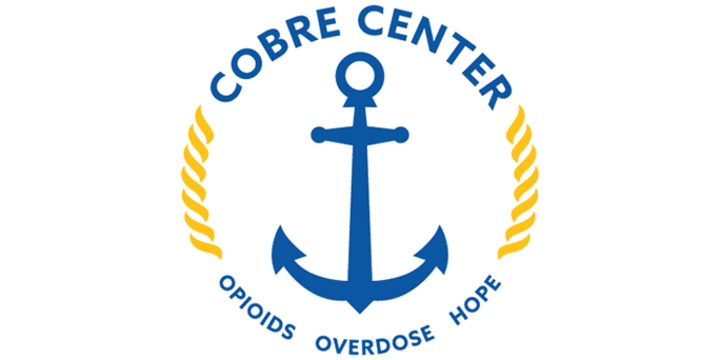
The Center of Biomedical Research Excellence (COBRE) on Opioids and Overdose, based at the Rhode Island Hospital, is the first center of its kind aimed to collaboratively address the opioid epidemic. This COBRE is a vibrant, interdisciplinary center that supports research essential to understanding the mechanisms underlying opioid use disorder and developing innovative solutions. A main objective of the NIH-Funded COBRE initiative is to support the development of junior investigators into independently funded investigators, and to develop a critical mass of investigators competitive for peer-reviewed external research funding.
Cognitive Neuroscience of Development and Aging COBRE
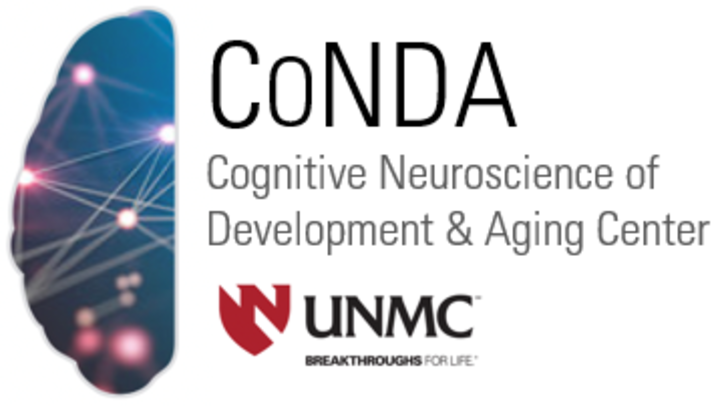
The Cognitive Neuroscience of Development and Aging COBRE (CoNDA) focuses on neuroscience research across the lifespan and works to advance translational and human neuroscience supporting innovative and collaborative research. CoNDA provides resources, major equipment, and technical expertise necessary for state-of-the-art assessment of human brain structure, brain function, and brain dynamics. CoNDA also provides resources to support the assessment of animal behavior and imaging in animal models of neurocognitive disorders. RDAR and CoNDA have developed a valuable partnership within the COBRE program. Our staff meets monthly to share ideas, upcoming timelines, important dates, and general IDeA information, creating efficiencies across inter-institutional COBRE programs and elevating the impact of IDeA support in our state.
Nebraska Center for Research on Children, Youth, Families, and Schools

The Nebraska Center for Research on Children, Youth, Families, and Schools (CYFS) seeks to foster collaboration among the University of Nebraska’s vibrant, interdisciplinary research community in social, behavioral, and educational sciences. CYFS also provides research assistance through the Nebraska Academy for Methodology, Analytics & Psychometrics (MAP Academy). The MAP Academy promotes the advancement of methodologies and analytics to support and enhance rigorous, substantive research. RDAR, CYFS, and MAP Academy have developed a mutually beneficial partnership that includes the submission of numerous jointly sponsored grant applications to advance health research.
Great Plains IDeA - Clinical and Translational Research
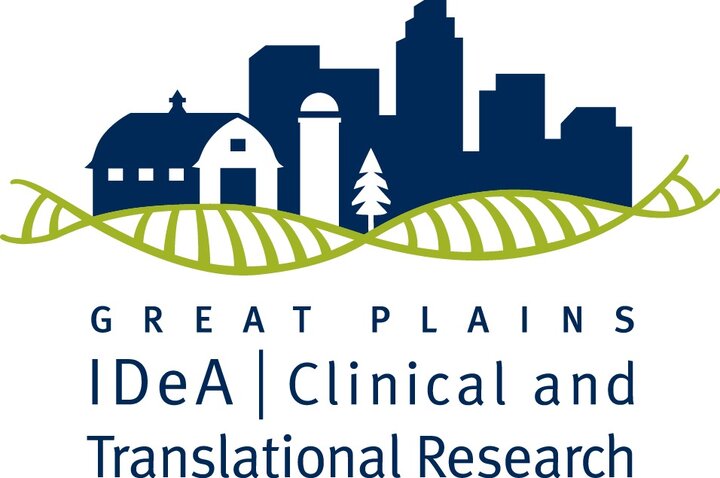
The Great Plains IDeA - Clinical and Translational Research (GP IDeA-CTR) provides a robust, networked research infrastructure to nurture, develop, and guide clinical and translational research, build collaborations, and strengthen community connections across Nebraska. The GP IDeA-CTR also fosters partnerships with other Institutional Development Award (IDeA) programs to better understand the development and prevention of disease, share best practices, and expand infrastructure. The GP IDeA-CTR aims to increase the number of researchers working on innovative ways to reach medically underserved populations and improve the health of individuals living within our region. RDAR frequently draws on the training, education, tools, and resources of the GP IDeA-CTR to support Center investigators and Center-affiliated studies.
Health Equity Research Experience for Undergraduates
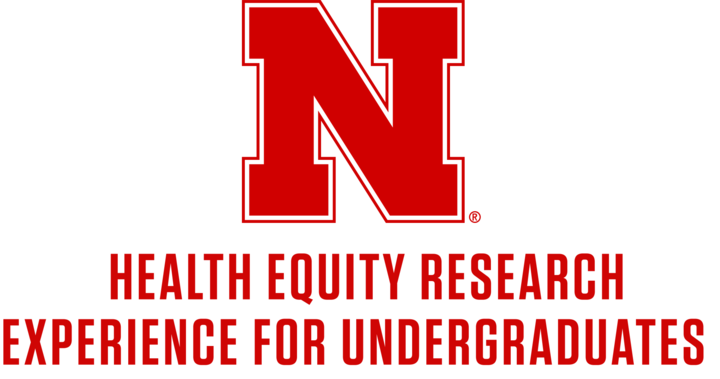
Health Equity Research Experience for Undergraduates (REU) provides rigorous and deeply meaningful student training on multiple community-engaged research approaches. The REU emphasizes training in: 1) community-based participatory research, 2) social network and other decentralized community methods, 3) community-engaged research in clinical and community settings, 4) research to reduce health inequities among multiply minoritized populations, and 5) community-engaged approaches with children and adolescents, including program development and evaluation research. RDAR and the REU have developed a strong partnership, including direct mentorship for student research experiences through our summer program.
Minority Health Disparities Initiative
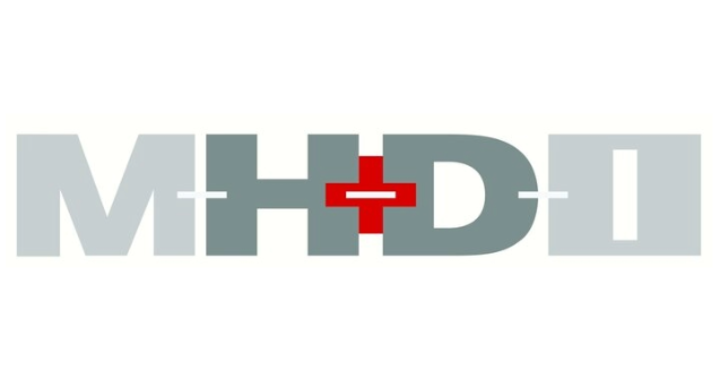
The Minority Health Disparities Initiative (MHDI) is a University-wide interdisciplinary research initiative funded by the Office of Research and Economic Development and the Tobacco Settlement Funds in Nebraska. The Initiative provides UNL faculty with an infrastructure for conducting innovative research to improve the health status of vulnerable and disadvantaged populations and expand the participation of minorities in research and education. The objectives of MHDI are to create a community of like-minded scholars capable of engaging each other in the pursuit of high-level research on minority health and health disparities, increase the participation of minority scholars at all levels (faculty, graduate students, and undergraduates) in health-related research, and train the next generation of minority health scholars at the undergraduate, graduate, and post-doctoral levels.
Nebraska Association of Behavioral Health Organizations

The Nebraska Association of Behavioral Health Organizations (NABHO) aims to build strong alliances across Nebraska to ensure quality and accessible behavioral health services for all residents. NABHO’s vision is for quality substance use and mental health services to become a central part of accessible healthcare in our state and is carried out through our core values which include expertise, alliances, advocacy, integrity, and quality. RDAR and NABHO developed a unique partnership to elevate the mission of NABHO through communications, dissemination, and translation expertise.
Nebraska Center for Substance Abuse Research
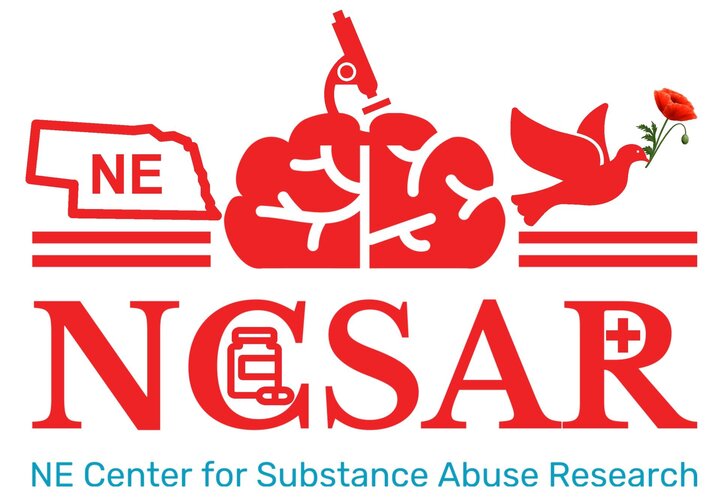
The Nebraska Center for Substance Abuse Research (NCSAR) promotes and facilitates research in understanding the consequences and prevention of drug abuse and neurodegenerative diseases. NCSAR aims to improve the quality of life of individuals and reduce healthcare costs in the state of Nebraska. NCSAR aims to facilitate transdisciplinary research in the area of substance use and its consequences on the biological functioning within the central nervous system, with the ultimate goal of developing therapeutic strategies aimed at preventing and treating addiction and associated comorbidities. RDAR draws on many of the resources of NCSAR for collaborations at our partner institution, the University of Nebraska Medical Center.
Nebraska Center for the Prevention of Obesity Diseases
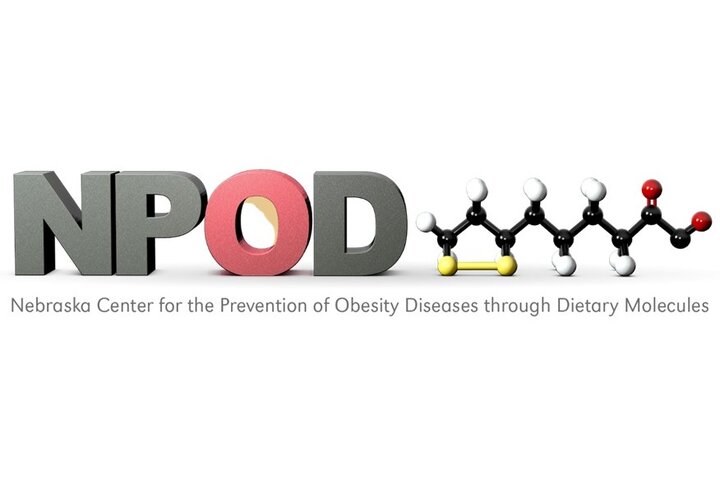
The mission of the Nebraska Center for the Prevention of Obesity Diseases through Dietary Molecules (NPOD) is to prevent, treat and cure obesity and comorbidities with bioactive food compounds. NPOD’s primary goals are to 1) build and 2) sustain biomedical research capacity in obesity and nutrition in Nebraska. NPOD provides services in bioinformatics, biostatistics, large-capacity and high-speed computation, molecular biology, animal imaging and phenotyping, and metabolomics. RDAR and NPOD have developed a very valuable partnership, strengthening the impact of IDeA funding at the University of Nebraska and across our state.
Public Policy Center

The Public Policy Center (PPC) is a multidisciplinary research and outreach unit committed to addressing complex issues by linking academic research, stakeholder perspectives, and practical experience through innovative and creative solutions. As a system-wide center, PPC is proud to be engaged in all 93 Nebraska counties. PPC’s mission is to link policy with research, process, and practice by working with researchers, policymakers, and stakeholders to actively inform public policy. RDAR and PPC have developed a valuable partnership, including opportunities to participate in RDAR events and annual symposium panels focused on policy considerations and to expand professional networks ensuring translation of research findings in our local, regional, and national communities.
Rural Prosperity Nebraska

Rural Prosperity Nebraska (RPN) supports rural communities through placemaking, regional food systems, economic and entrepreneurship development, leadership training, and resident retention and attraction. RPN collaborates with University of Nebraska faculty and community leaders to create service-learning opportunities for students interested in rural issues, as well as implement the real-world application of rural development scholarship. RPN also partners with Nebraska Extension to publish the Nebraska Rural Poll, an annual survey organized by the UNL Department of Agricultural Economics. RDAR and RPN have developed a valuable collaboration that includes mentorship, training, and community engagement opportunities.
Translational Hearing Center
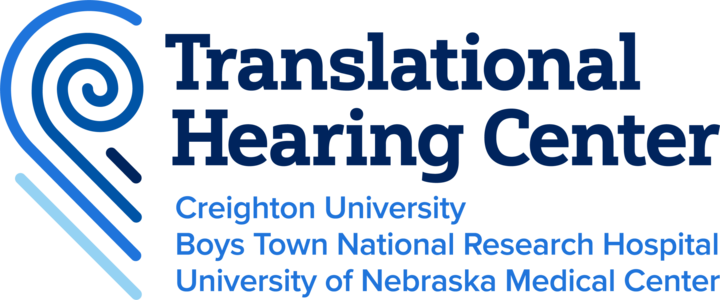
The Translational Hearing Center is committed to developing a cadre of translational auditory/vestibular research scientists developing biomedical and other therapeutic solutions that preserve or restore hearing and vestibular function. The Center is located at Creighton University, with nearby Boys Town National Research Hospital and the University of Nebraska Medical Center as institutional partners. RDAR and the Translational Hearing Center have developed a valuable partnership within the COBRE program. Our staff meets monthly to share ideas, upcoming timelines, important dates, and general IDeA information, creating efficiencies across inter-institutional COBRE programs and elevating the impact of IDeA support in our state.
Worlds of Connections

The Worlds of Connections (WoC) Science Education Partnership Award provides informal educational activities for middle-school youth with a focus on using network science to understand complex systems that impact health. In addition, WoC offers opportunities for teacher professional development and fosters numerous partnerships with researchers who use network analyses for health. Through these efforts, WoC aims to spread knowledge and excitement about network science for health careers, especially among youth from groups historically excluded from participation in science, technology, engineering, and mathematics. RDAR and WoC have worked closely to develop high-quality network training opportunities for our team members, brainstorm and design informal network activities for youth, and jointly host film screenings on programmatically relevant topics.
West Virginia Clinical and Translation Science Institute
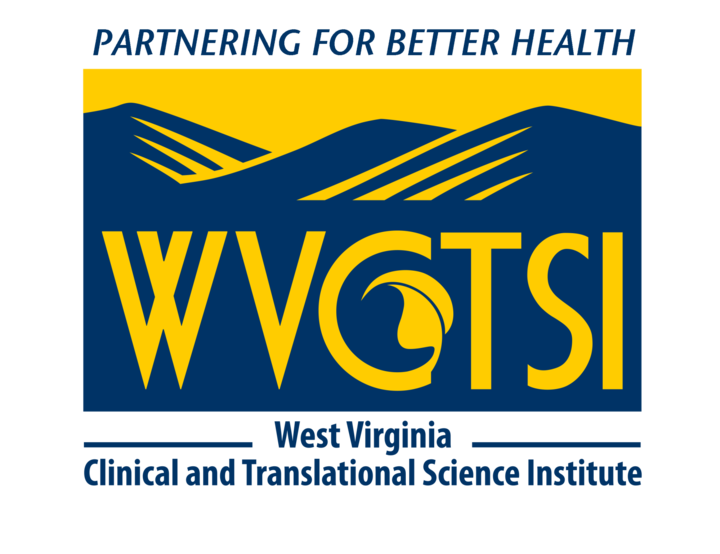
West Virginia Clinical and Translation Science Institute (WVCTSI) is an academic home and a catalyst for clinical and translational research that targets West Virginia and Appalachian health challenges including Alzheimer’s Disease, emerging epidemics (e.g., SARS-CoV-2, HIV), cancer, cardiovascular disease, chronic lung disease, and substance use disorder (addiction). Participating faculty and clinicians across the state are provided with research resources that include biostatistics support, clinical data resources, pre-award support and access to a range of funding mechanisms, educational and training programs, and community networks. RDAR and WVCTSI have developed a strong partnership that includes collaboration on the annual joint symposium for substance use research.
West Virginia IDeA Network of Biomedical Research Excellence
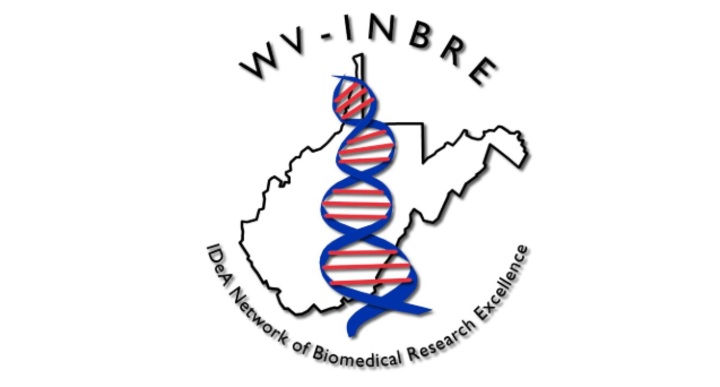
The West Virginia IDeA Network of Biomedical Research Excellence (WV-INBRE) is an NIH-funded Institutional Development Award program with the goal of helping build biomedical research infrastructure across West Virginia. An emphasis is placed on enhancing research infrastructure at primarily undergraduate schools, supporting developmental research projects, and providing biomedical research experiences for undergraduate and graduate students. WV-INBRE also provides biomedical research training for students and faculty and core support in genomics and bioinformatics.